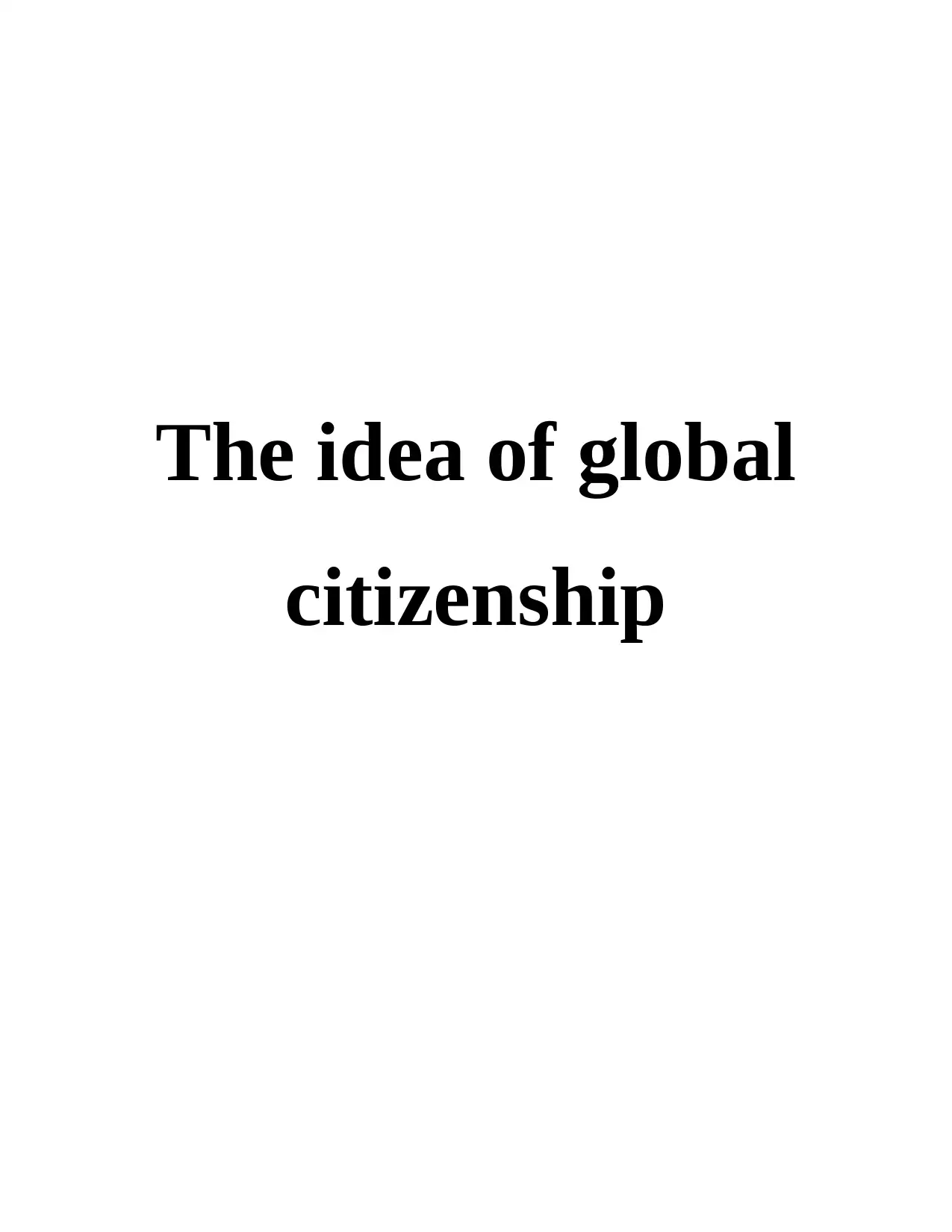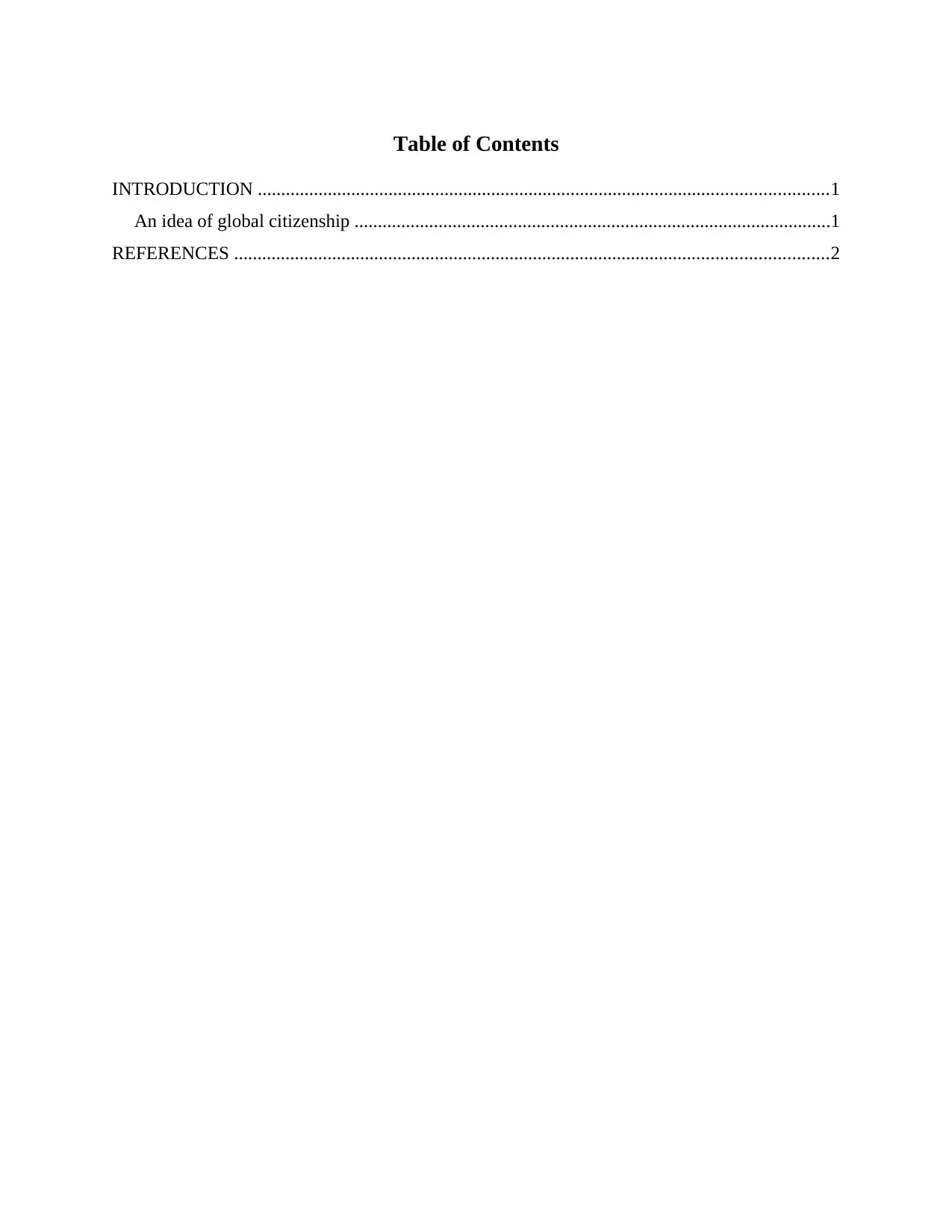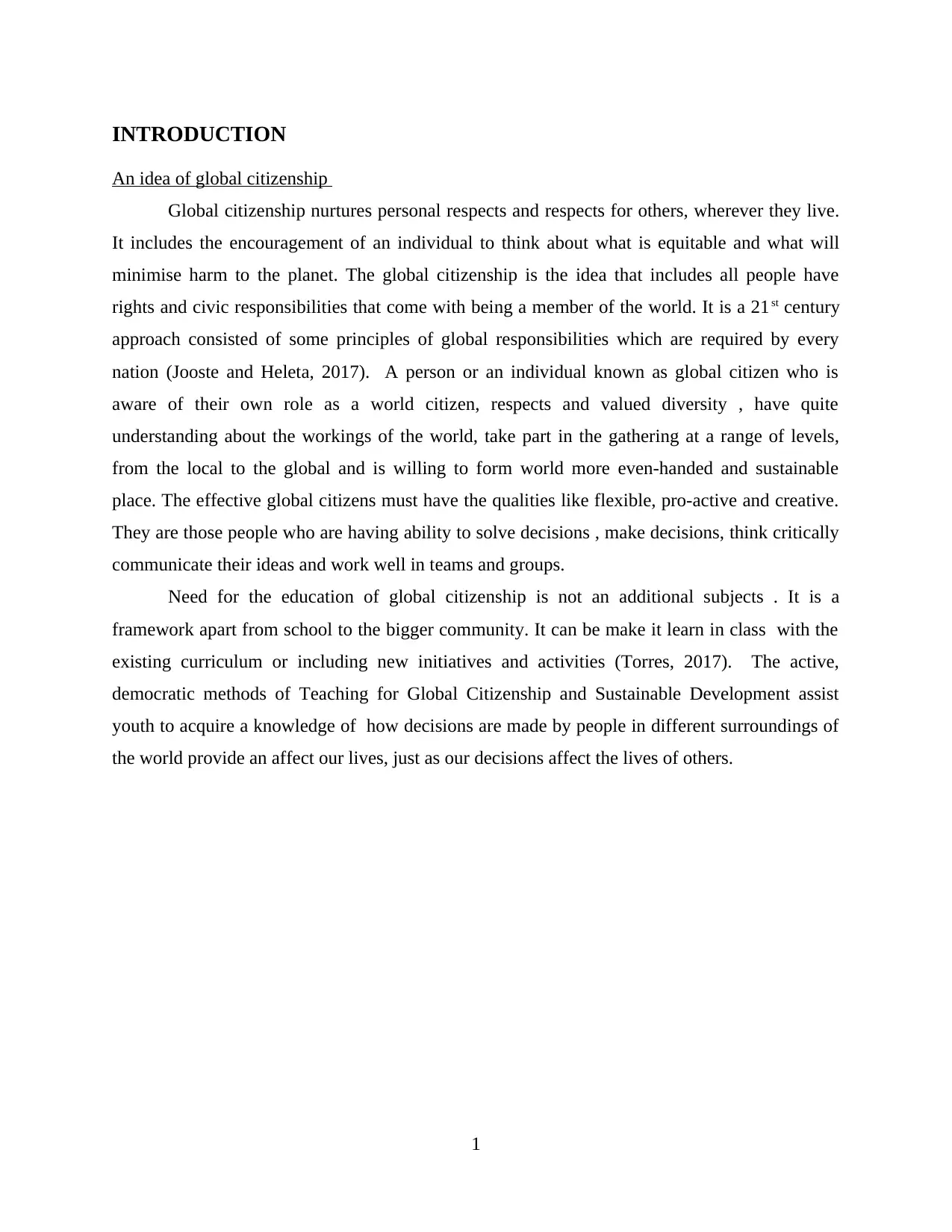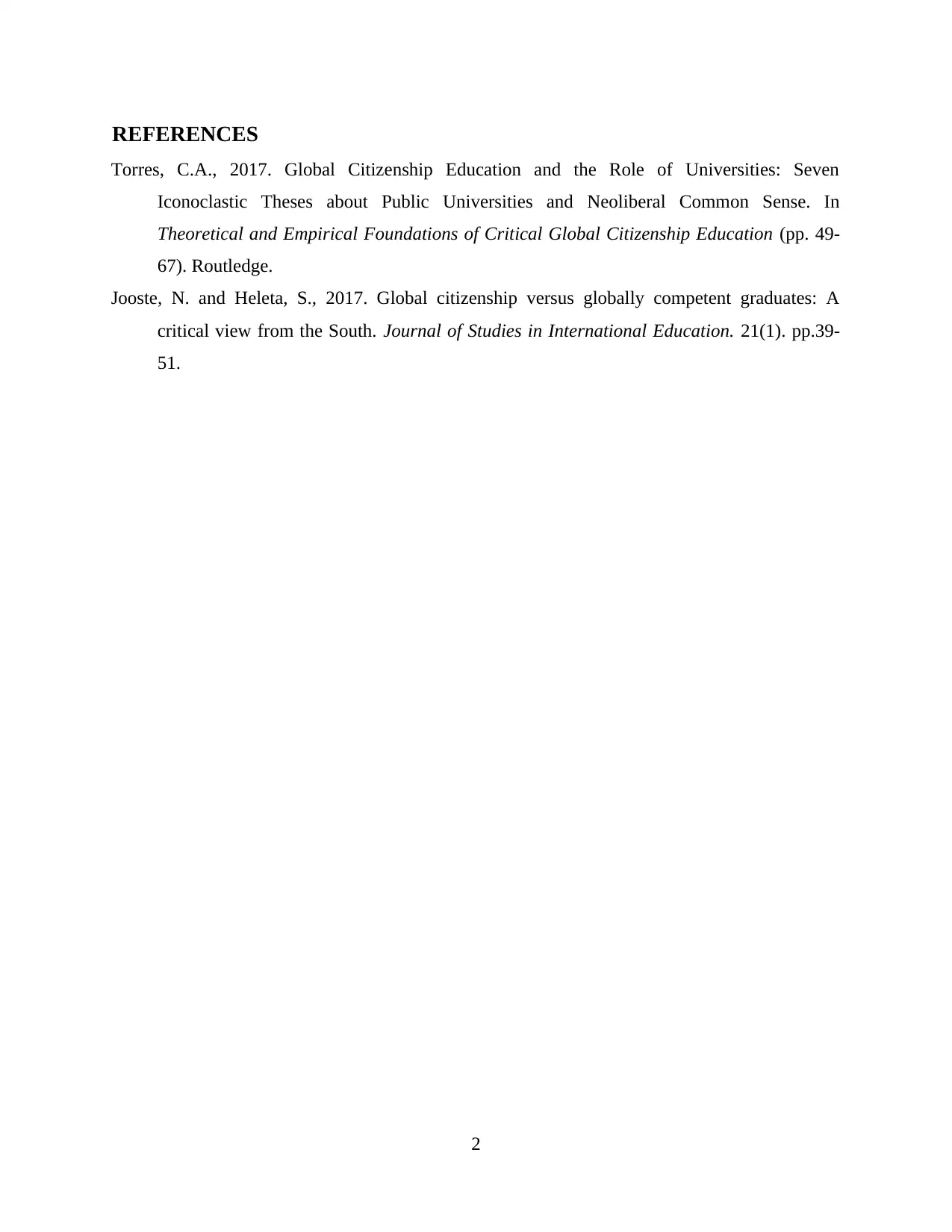Report on Global Citizenship, Challenges and Solutions
VerifiedAdded on 2020/10/23
|4
|401
|385
Report
AI Summary
This report delves into the concept of global citizenship, examining its core principles and the responsibilities it entails. It emphasizes the importance of understanding one's role in the world and the need for global education to foster critical thinking and decision-making skills. The report highlights the qualities of effective global citizens, such as flexibility, pro-activeness, and the ability to work collaboratively. It discusses how global citizenship education can be integrated into existing curricula and emphasizes the impact of individual decisions on a global scale. The report references key scholarly works, including studies on global citizenship education and the role of universities in promoting it. The report also points towards the need for a more equitable and sustainable world through the lens of global citizenship. The report highlights the importance of considering the impact of decisions on a global scale and how it can affect the lives of others.
1 out of 4











![[object Object]](/_next/static/media/star-bottom.7253800d.svg)